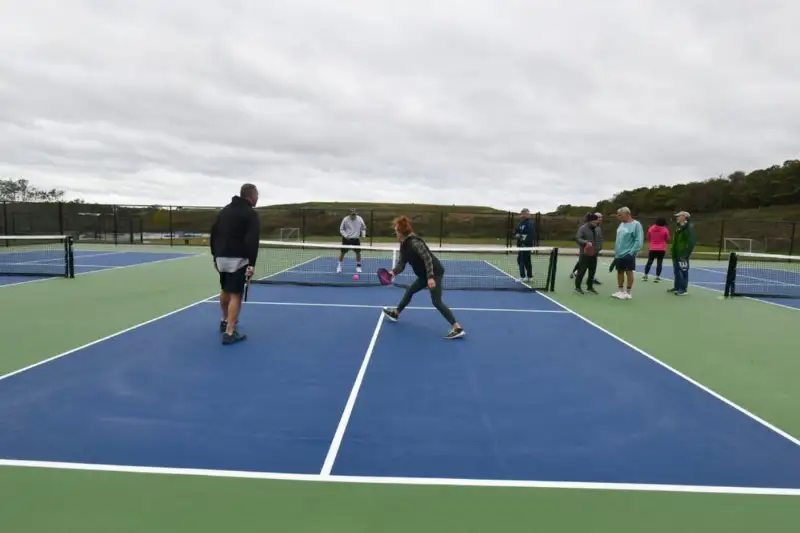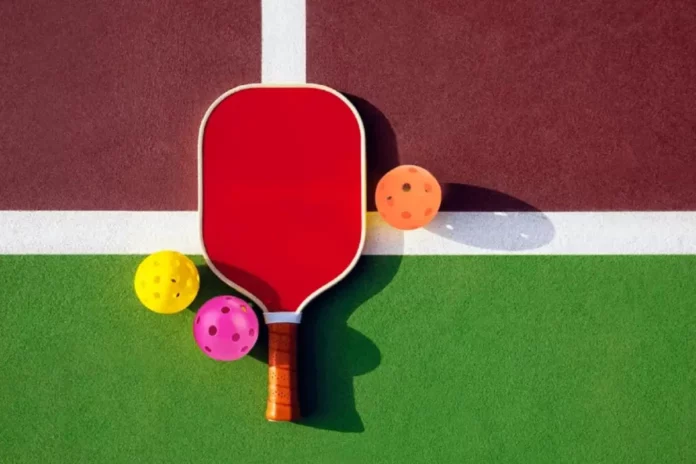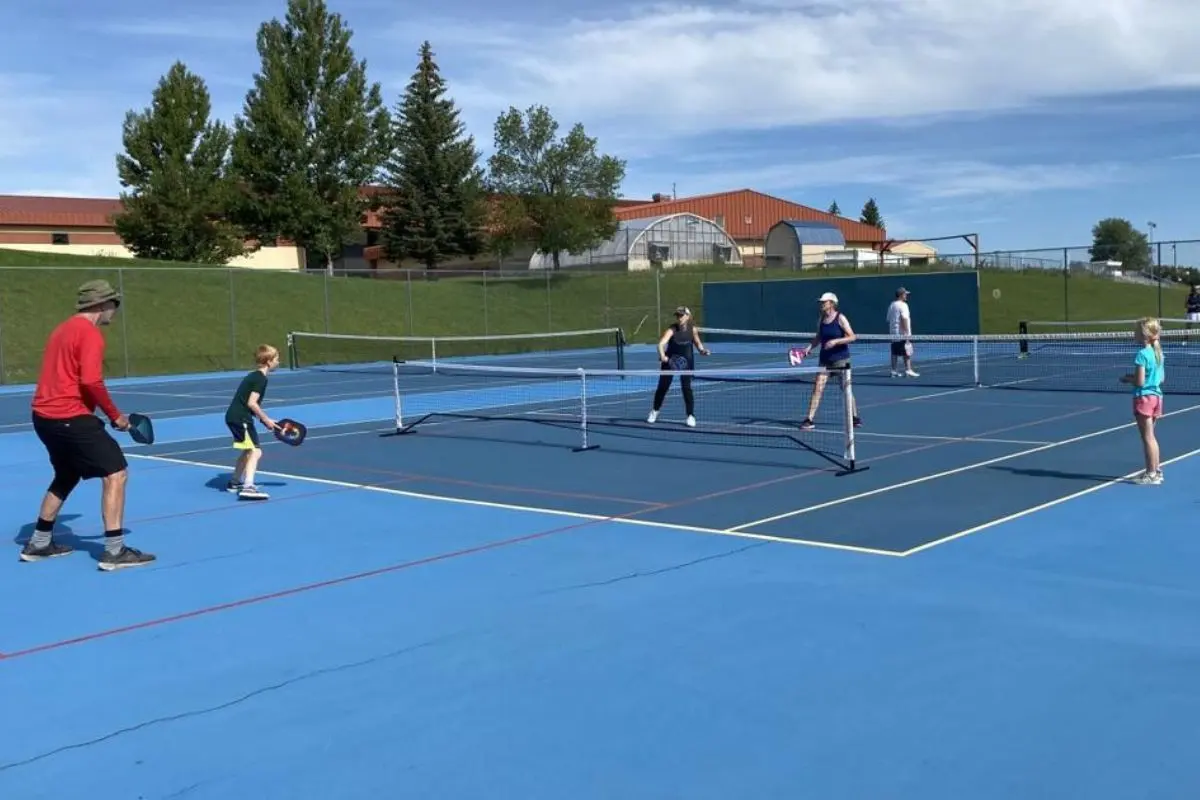Secrets of Mastering Pickleball: When players become suited to their level of play, they often find themselves predicting responses to their questions. Pickleball coach Morgan Evans emphasizes the importance of mastering the “language of pickleball.” He explains that when a player serves, they not only deliver the ball but also pose a series of questions. The primary inquiry is: “Can the opponent return the serve?” This leads to a host of associated questions:
- “How deep can the opponent return the serve?”
- “Will there be some kind of spin on the return?”
- “Will the return need to be hit high to buy extra time to get to the kitchen line?”
Once the return is made, the server’s questions are answered, and the dynamic shifts. The return itself isn’t merely a response; it poses questions of its own:
- “Yes, the return can be made, and it can be executed with depth and pace.”
- “Can the opponent successfully play a third shot?”
- “Will the opponent be able to force the server or their partner to hit up over the net?”
- “Will the return be a drop or a drive?”
These examples show the initial Q&A of a pickleball point. At higher levels of play, responses become more predictable; for instance, returns tend to be successful, low, and delivered with good depth.
The Problem with Predictability
This predictability can create challenges. When players become too comfortable with the anticipated answers to their questions—like when they routinely encounter a “No” in response to, “Will the opponent be able to force a hit up over the net?”—they may stop exploring other pickleball strategies.
Most points end before all four players reach the kitchen line, making it difficult for players to adapt when they suddenly face unexpected responses. For example, encountering an opponent who replies, “Yes, easily, I’ll drop it in the kitchen and see if the opponents can still keep us back!” can leave players scrambling to adjust their tactics.
Overcoming the Language Barrier
Morgan Evans points out that the issue often isn’t a lack of ability to execute the correct shots; rather, it’s a language barrier. He likens it to being in a foreign country without an interpreter. Players often feel lost, grappling with unfamiliar terminology and customs.
Those who progress the fastest are the ones who quickly learn this new language. They soon realize that more skilled players can capitalize on high balls, return deep against weak serves, and exploit wide dinks by hitting around the post.
Fortunately, players don’t need to immerse themselves in the game by competing against better opponents to improve. Morgan Evans humorously introduces what he calls the “Rosetta Stone for Pickleball,” available on iOS and Android. While visiting a foreign land can enhance language learning, it’s not the only way to start communicating effectively on the court.
The Power of Observation
Drawing from a study on basketball free throws, Morgan Evans notes that a group of participants was divided into two. Group A practiced free throws for three hours a week, while Group B was instructed to watch free throws and visualize making the shots without touching a ball. Surprisingly, both groups showed similar levels of improvement after a month.
While free throw shooting is a closed skill, pickleball is an open skill largely influenced by opponents’ actions. However, Morgan Evans observes a clear connection between player development and the amount and quality of pickleball one watches.
Morgan Evans advises players to watch matches just slightly above their skill level. For instance, a 3.0 player should watch 4.0 players, while a 5.0 player should aim for APP qualifiers. By progressively exposing themselves to higher levels of play, players can develop their understanding and language proficiency in pickleball.
The Importance of Active Observation
Morgan Evans challenges players to consider not just whether they are watching the right level of pickleball but how they are watching it. He distinguishes between mere watching and active observation.
Observation requires thoughtful visual processing to discern what’s happening, what questions are being asked and answered, and which strategies are effective.
Morgan Evans encourages players to take a break from their usual routine and audit a game that is slightly above their level. By observing the game, something that stands out will likely be noticed.
After the match, players should engage with the participants, asking them why specific shot choices were made. This dialogue is crucial for understanding the language of the game.
Understanding the Language of Pickleball
Morgan Evans warns against common misconceptions. Statements like “I thought my dink was safe” or “I’ll just run to the kitchen after my third shot” reflect a lack of understanding.
Players don’t need to compete with better players to improve, but understanding the questions their shots should ask and anticipating opponents’ responses is vital for development.
As players improve their court IQ and their physical skills align with their understanding, they will experience rapid growth.

News in Brief: Secrets of Mastering Pickleball
Morgan Evans emphasizes the importance of understanding the “language” of pickleball for player development. He compares the game to a dialogue, where each shot poses questions and requires thoughtful responses.
To improve, players should observe higher-level games, discerning strategies and engaging with players to grasp the intricacies of the sport. Ultimately, mastering the language of pickleball can significantly enhance a player’s performance and growth in the game.
ALSO READ: Pickleball Pros Embrace Halloween with Flair and Fun: Top Picks


